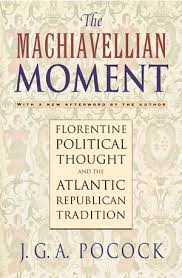This week, History Today editor Paul Lay, dusts down some tomes and tells us his personal favourites:
 1. David Landes, The Wealth and Poverty of Nations (Abacus, 1999)
1. David Landes, The Wealth and Poverty of Nations (Abacus, 1999)Why, after the Industrial Revolution, some countries gained great prosperity and other sank into penury. The availability of clocks and spectacles can be more important than economic resources but, Landes concludes, it is better to ‘live to work, than work to live’. Timely advice.

2. Thucydides, The Peloponnesian War (Penguin Classics, 2000)
The long conflict between Greece and Sparta that took place in the fifth century BC is the subject of one of the earliest – and still one of the best – narrative histories ever written.

3. Christopher Bayly and Tim Harper, Forgotten Armies: Britain’s Asian Empire and War with Japan (Penguin, 2005)
A magisterial, sometimes irreverent account of the collapse of British possessions in Asia during the Second World War, and the desperate, grubby attempt to claw them back.

4. John Adamson, The Noble Revolt: The Overthrow of Charles I (Phoenix, 2009)
First in a proposed two volume history of the English Civil Wars by one of our finest young historians. Combines riveting narrative with cutting-edge scholarship. Has transformed our understanding of 17th-century Britain.

5. Derek Birley, A Social History of English Cricket (Aurum, 2003)
Engrossing account of the origins and development of the most beautiful, complex and compelling game ever invented. The pen portraits of the great and good are vivid and, in the case of Lord Hawke, hilarious.

6. Raphael Samuel, Island Stories (Verso, two vols, 1996)
The much-missed Samuel was that rarity, a left-wing historian who loved his country, though was never afraid to cast a pitiless eye upon its foibles and contradictions. A masterclass in clarity and incision.

7. J.G.A. Pocock, The Machiavellian Moment: Florentine Political Thought and the Atlantic Republican Tradition (Princeton, 1975)
Classic study of how Italian political thought was transmitted to the New World via early modern England.

8. Jenny Uglow, The Lunar Men: The Friends Who Made the Future (Faber, 2003)
Learned but hugely entertaining account of the five amateur scientists of the 18th century who met in Birmingham’s Soho House on nights with a full moon and whose ideas gave birth to the modern world.
 9. Michael Burleigh, The Third Reich: A New History (Pan, 2001)
9. Michael Burleigh, The Third Reich: A New History (Pan, 2001)The best book ever written in English on a subject about which far too many words have been spilt. Moral, caustic and profound.
 10. Bernard Porter, The Lion’s Share: A Short History of British Imperialism, 1850-2004 (Longman, 2004)
10. Bernard Porter, The Lion’s Share: A Short History of British Imperialism, 1850-2004 (Longman, 2004)Single-volume overview of British imperialism that manages to be entertaining, illuminating and wonderfully personal. The latest edition contains the author’s pithy observations on Britain’s status post-Iraq War.

No comments:
Post a Comment